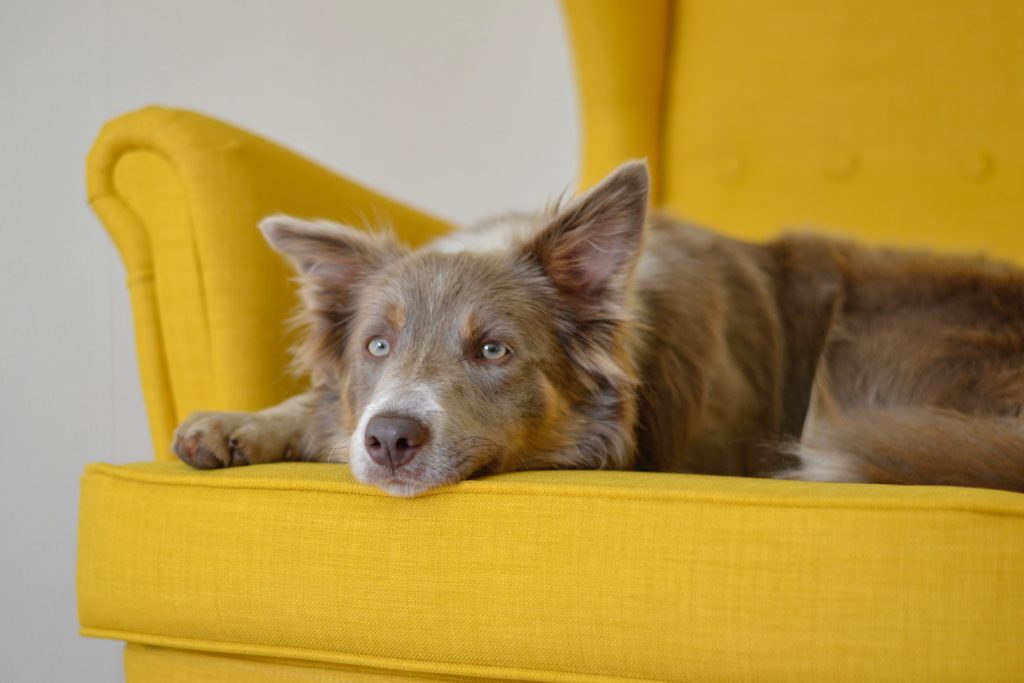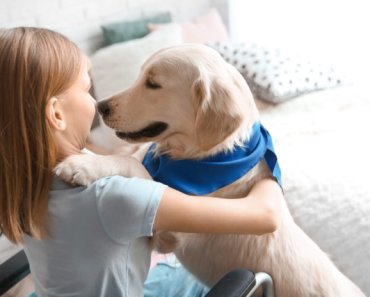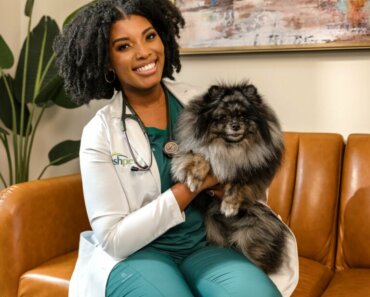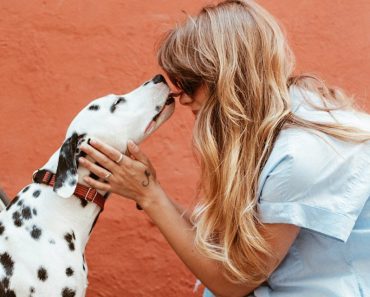There are numerous reasons why your pet could be feeling stressed. Changes in their routine, their environment, a new addition to the home, or even something as innocuous as a new piece of furniture can increase your pet’s stress level. We’ve asked our Freshpet vet, Dr. Aziza, to give some insight into signs that your cat or dog is dealing with stress, as well as what you can do to reduce it.
What are the top signs of stress in dogs?
When
dogs are stressed, there are a number of ways that they display it. Some of the
top signs include:
- Standing/sitting motionless
or “stiff” - Pacing
- Panting
- Excessive licking
- Drooling
- Hiding
- Whale eyes (white part of the
eyes, easily seen from the eyes being very wide or open) - Changes in ear position
- No appetite
- Dilated pupils
- Inappropriate urination or
defecation - Increased shedding of fur
- Tucked tails
- Growling
- Whining
- Barking
A stressed dog may not show all of these signs at once, so it’s important that pet parents are familiar with the various ways stress can manifest itself. This way, they can recognize if their dog begins to display an increasing number of signs and intervene as soon as possible.

What are the top signs of stress in
cats?
Stressed
cats display similar behavior as dogs, with the top signs being:
- Hiding
- Standing/sitting motionless
or “stiff” - Inappropriate urination or
defecation - Pacing
- Excessive grooming
- Dilated pupils
- Vocalizing
- No appetite
- Increased shedding of fur
- Tucked tails
- Growling
- Purring
Where
cats differ is the fact that their signs of stress tend to be slightly more
subtle than a dog’s. Purring, in particular, can be hard for pet parents to
connect to stress as it’s usually seen as a positive behavior.
Does my pet understand when I’m sad
or angry, and does it make them stressed?
There
are several scientific studies that suggest dogs can sense and reflect emotions
from humans, including stress and anxiety. Dogs are very receptive to facial
expressions, vocal tone, and even chemicals found in body odor that all exhibit
emotions like stress. They also tend to be empathetic, meaning they can start
to experience the same emotions they are perceiving.
So
in a way, yes, a pet owner’s negative emotions like sadness or anger can make
their pet stressed. On the other hand, positive emotions like happiness can
positively affect your pet too!
What is an indicator that my dog
doesn’t feel well?
Some
of the signs that your dog is stressed can also indicate that they’re not
feeling well. However, there are a few key things that indicate your dog is
dealing with more than just feelings of stress. Some key signs of illness in
dogs include:
- No appetite
- Vocalizing/whining
- Not interested in playtime
- Lethargy
- Trembling
- Vomiting/Diarrhea
- Panting
- Excessive sleep
- Body language (tail tucking,
ear positions)
If
your dog displays any of these symptoms, it’s important to schedule an
appointment with your vet to see if they are dealing with an underlying
illness.

Where do cats and dogs often not like
to be pet?
Most
cats and dogs love a good petting session, but there are places on their body
that can cause stress if touched. Some of these include:
- The top of the head
- Feet
- Legs
- Tail
- Genitals
- Anal region
When giving your cat or dog some affection, instead of petting these potentially stress-inducing areas, try more neutral spots like their chest, shoulders, or base of their neck. If you have young children, it’s also a good idea to take the time to teach them how to properly interact with your pets.
How can I reduce my pet’s stress?
There
are four key ways that you can reduce your pet’s stress:
- Diet: A great way to reduce stress in your pet is to start with a healthy dog food diet. A well-balanced diet, fed with appropriate portions, leads to a healthy body that is ready for a lot of activity. Exercise and playtime are crucial for pets’ mental health and well-being. Having a well-balanced diet with high-quality ingredients supports the body during these activities. The best dog food diets are rich in essential fatty acids, like Freshpet’s Nature’s Fresh® Grain-Free Salmon and Ocean Whitefish recipe, which also help maintain good brain health.
- Set a schedule: Pets that have anxiety benefit greatly from having a reliable schedule. There is comfort for them in knowing when to expect mealtime, walks, play, and their pet owner’s schedule too.
- Exercise: As mentioned earlier, exercise helps a lot of pets with anxiety, especially dogs with a lot of energy. Not being able to utilize that energy can manifest in destructive behavior, like chewing on furniture, which is often rooted in stress and anxiety.
- Self-care: Make sure you take care of yourself and your mental health as well. As discussed above, your dog can tell when you are stressed and it can affect them. This is why it’s essential that you find healthy ways to destress because, in turn, you’ll be helping reduce your pet’s exposure to stress as well.

Are there any supplements or foods I
can feed my pet to calm them down?
There
are several supplements that help pets feel calmer, as they contain active
ingredients to decrease a pet’s anxiety and stress. To learn which products are
a good option for your pet, contact your primary care veterinarian for more
information.
We
hope that Dr. Aziza’s answers give you a bit more insight into the signs that
your cat or dog is dealing with stress. If you suspect that this is happening
with your pet, speak to your veterinary team. They will be able to work with
you to find the best solution to reduce your pet’s feelings of stress.


























